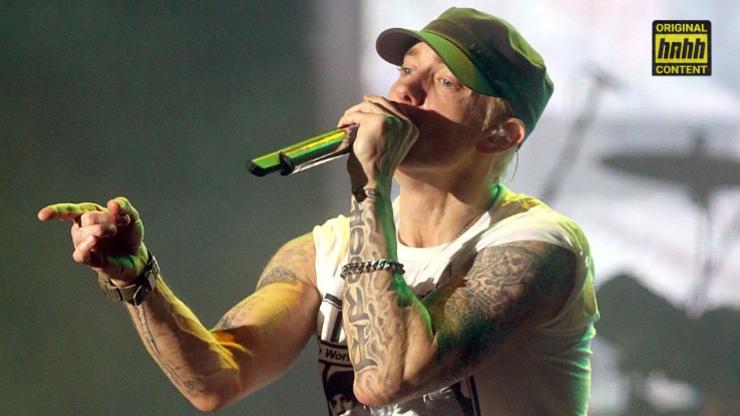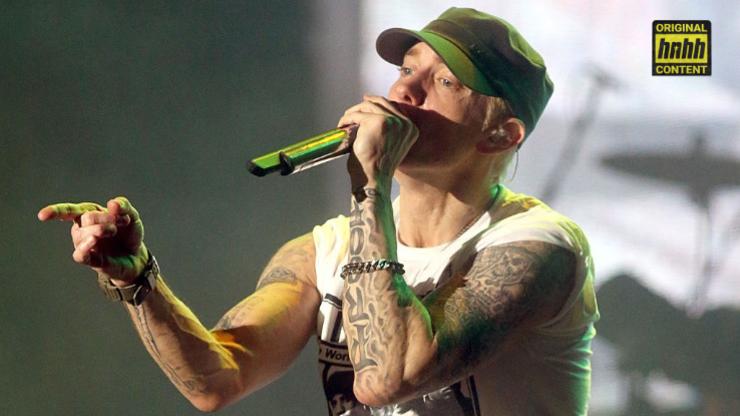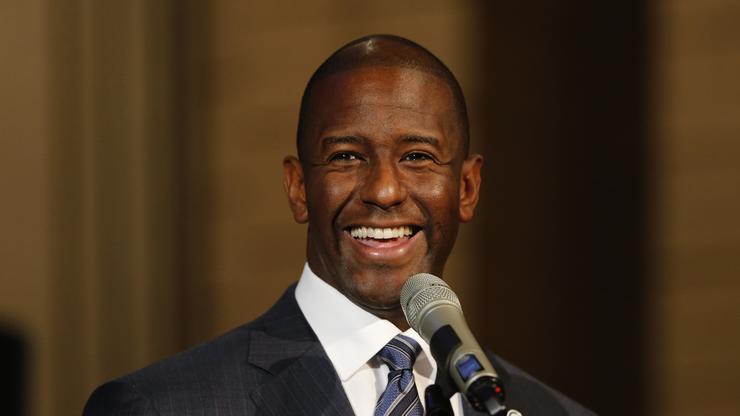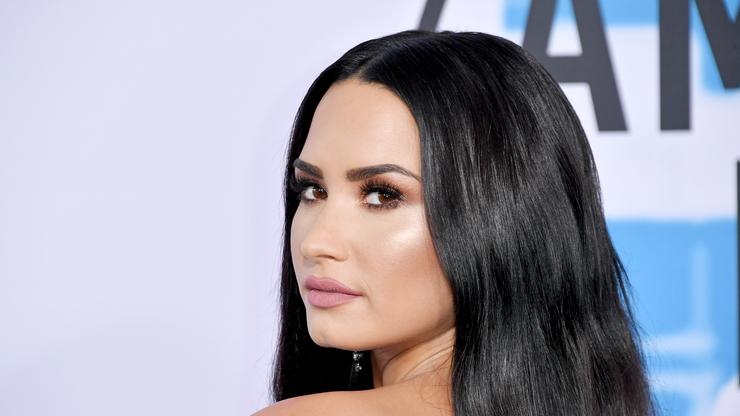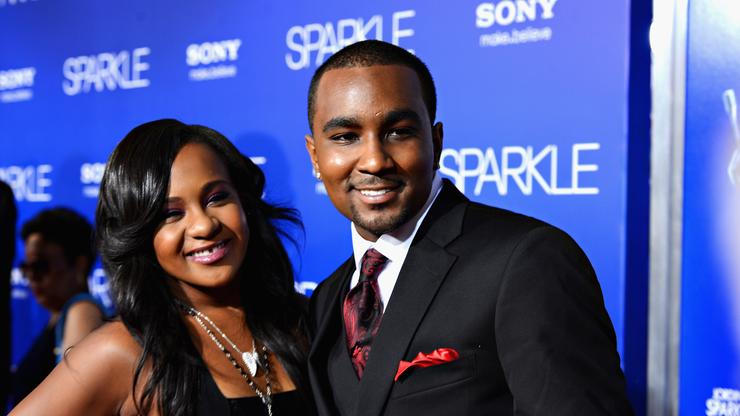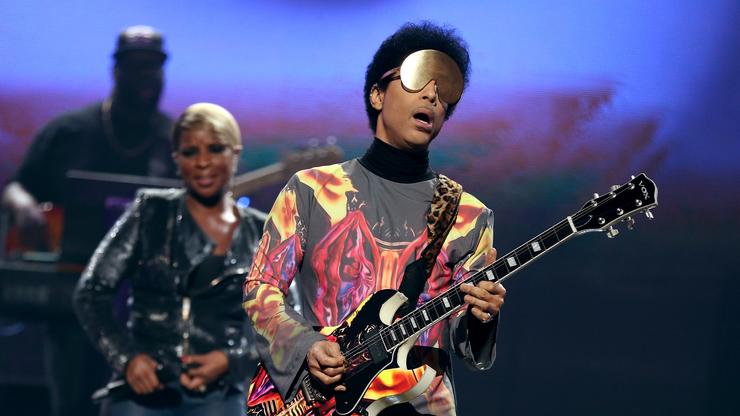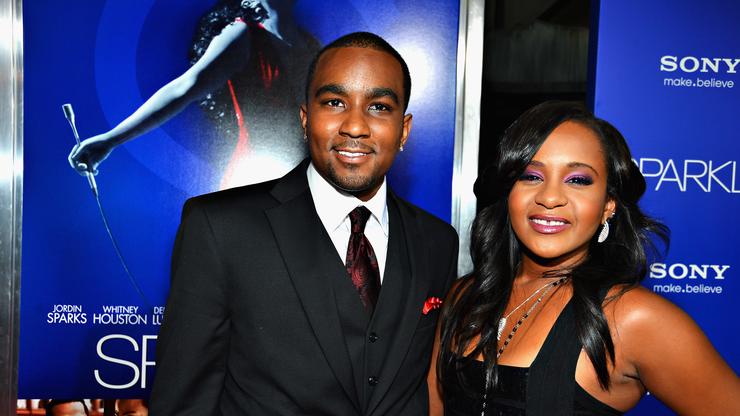The hip hop community was stunned by the news that Juice WRLD had passed away, and his loved ones are still piecing together their lives following such a tragedy. The 21-year-old rising star died after suffering a seizure reportedly brought on by oxycodone and codeine, causing a ripple effect of his rap peers pledging to quit using drugs. Juice WRLD's girlfriend Ally Lotti has continued to grieve the loss of her partner, and she took to Instagram Live to share tears, and memories, of the late rapper.
"I know J's with me," she said in the video as she began to tear up. "I'm so thankful. I know he's always with me, but when he shows me signs it really just gives me the motivation. I'm so blessed and thankful for that right now. So blessed." Later, she talked about being "so proud" of Juice WRLD while thanking the rapper's fans for supporting his recently posthumous release, "Righteous."
"I just want to make you guys so proud," Ally Lotti said while crying. "I don't know if you guys know, but I have nothing to do with—when I first got with Jarad, I didn't want anyone to think I was with him for his money. I had my own money. I have my own money. I did not need Jarad for that. I wanted Jarad for Jarad." She added that she had Juice WRLD's lawyers draw up some sort of document to prove that she didn't want anything from the late rapper while they were together.
"I just want our memories, I want our story," Ally stated through tears. "I just want our music and the music that he made for me. That he wants you guys to hear. And that's what I'm putting myself into. Not for anything else. I get nothing out of this, just so you guys know, and I don't want anything out of this... Literally that's it." Watch videos of Ally Lotti revisiting memories of Juice WRLD below.
View this post on Instagram#wrldedits_ #juicewrld #juicewrldedits #allylotti #juiceedits #missingyou
Eminem’s "Deja Vu" Is The Realest Song He Ever Wrote
Widely regarded as one of hip-hop’s best writers of all time, “Deja Vu” stands out as the most devastating song of Eminem’s career.
Eminem has been brutally honest since The Slim Shady LP released in 1999. With Dr. Dre in the co-pilot’s chair spurring him on, Slim Shady left nothing on the table, weaving an elaborate and detail-rich autobiographical tapestry across his vast discography. Singling out one song as the realest shit he ever wrote is no easy feat given the scope of the competition. Yet with every passing year the case for “Deja Vu” continues to strengthen. A surprising turn, perhaps, given that Relapse is by-and-large a conceptual horrorcore album. Yet the moments of humanity that do surface benefit from the project’s darker tone, appropriate given the gravity of Em’s revelations.
Relapse is lined with impressive production work from Dr. Dre and his team, who immersed themselves in Slim’s macabre thematic vision. While Dre was no stranger to the dark banger beforehand, his foray into full-blown horrorcore was handled with the guiding hand of an orchestral visionary. For the most part, his eeriest instrumentals served as menacing mood music over which Em’s accented and depraved serial killer could prowl. On “Deja Vu,” however, the curtain was pulled back and the mask was lifted. For the first time in what felt like years, fans were forced to confront the man beneath. The result was among the most vulnerable, and perhaps most impressively penned, tracks of Eminem’s career.
While subtle, Dre’s production on “Deja Vu” might stand as the album’s crowning musical achievement. Representing inner turmoil through the subtlety of a simple guitar riff, a slightly overdriven flip of Naughty By Nature’s “Yoke The Joker.” As far as percussion, Dre opts for a scaled-back, almost boom-bap kick-clap combo, delivered with the lethargy of a slow-burning dirge. The chorus is given additional urgency through a smothering organ, haunting in its progression; the perfect complement to Eminem’s vulnerability, the severity of which is reflected within his defeated diction. “Sometimes I feel so alone, I just don’t know, feels like I’ve been down this road before,” he raps. “So lonely and cold, it’s like something takes over me, as soon as I go home and close the door.”
Michael Caulfield/WireImage/Getty Images
There’s something highly personal about a collaboration of this nature, and it’s no wonder Em looked to his longtime friend and mentor to lay the foundation. Make no mistake, “Deja Vu” is a reflection of Eminem at his lowest point, only revisited through the lens of hindsight. Not only did it serve to provide longtime Shady Records loyalists with some much-needed answers, but it also provided a disturbing update. By his own admission, Eminem was on death’s door. In keeping with his fondness for gallows humor, the gravity of his situation was delivered in a cavalier fashion. “See me and you, we almost had the same outcome Heath/ cause that Christmas, you know the whole pneumonia thing? It was bologna, was it the methadone, ya think?” he raps, confirming the severe toll his long-rumored battle with addiction had nearly taken. And doing so as part of a ridiculously tight multisyllabic rhyme scheme, at that.
Though much of Relapse’s conceptual nature derives from its loose horrorcore narrative, the topic of drug abuse is a lingering presence throughout. At times it’s delivered in tongue-in-cheek fashion, adding a deranged layer of disassociation to his fictitious murder sprees. Yet the album begins with the disturbing “Dr. West,” which kicks off the twisted road to “Deja Vu.” Though the segue into “3 AM” aligns the intro closer to dark fantasy than reality, that all changes when Eminem begins shedding his conceptual layers and revealing his genuine self. Suddenly, the duel with his seemingly demonic doctor is put into perspective. This was a battle that nearly cost Eminem his life, sparking an alternate timeline where the legendary rapper passed away in December of 2007. To hear it addressed with such brutal honesty was a startling reminder of Eminem’s mortality; like that, his entire artistic legacy was put in perspective.
It wasn’t as if fans weren’t suspect that something was afoot. Following the release of Obie Trice’s Cheers, Em’s style began to undergo a subtle, albeit noticeable shift. His contributions to 2004’s D12 World lacked his usual focus, and his fourth studio album Encore featured several moments of uncharacteristically dulled lyricism. That’s not to say his output was weak, but many wondered if the longtime feuds with Ja Rule and Benzino were beginning to take a toll on Slim’s mental health. When his best friend and D12 collaborator Proof died on April 11th, 2006, concerns for Eminem’s well-being ramped up.
M. Caulfield/WireImage/Getty Images
When he released his Shady Records compilation The Re-Up eight months later, many assumed he would address Proof’s death on the record. He did not. Instead, Em responded to The Re-Up’s success with further uncertainty surrounding his own career. Thoughts of retirement loomed as each verse that did arrive was subjected to heightened scrutiny. In hindsight, it’s clear that some of his music was affected by his addiction to Vicodin and Valium, which he had been using on-and-off since 2002. By his own admission, he was popping up to twenty pills a day. All the while, he was keeping the extent of his personal crisis close to the chest, surprising given his traditional habit of opening up on wax. It was that very radio silence that ultimately imbued “Deja Vu” with such power.
Using his vivid prose, Em brings the nature of his struggle to life with disturbingly realistic imagery and candid admissions. “So I take a Vicodin, splash, it hits my stomach, then ahhh, couple of weeks go by, it ain’t even like I’m getting high,” he raps, in the climactic verse. “Now I need it just not to feel sick, yeah, I’m getting by / wouldn’t even be taking this shit if DeShaun didn’t die / Oh yeah, there’s an excuse, you lose Proof so you use / there’s new rules, it’s cool if it’s helping you to get through.”
Aside from the never-meant-to-be released “Difficult,” “Deja Vu” marked the first time Eminem openly addressed his friend’s tragic death, with his first official tribute to come on Recovery’s “You’re Never Over.” The manner with which he does so is almost flippant, a testament to his fractured mental space at the time; few lyricists can capture a distinct moment like Eminem, who manages to reenact a personal low with hyper-detailed accuracy. While songs like “Stan” and “Bad Guy” reveal his depth as a storyteller, “Deja Vu” packs all the more punch given one simply reality: it’s a biopic, not a thriller.
Eminem’s "Deja Vu" Is The Releast Song He Ever Wrote
Widely regarded as one of hip-hop’s best writers of all time, “Deja Vu” stands out as the most devastating song of Eminem’s career.
Eminem has been brutally honest since The Slim Shady LP released in 1999. With Dr. Dre in the co-pilot’s chair spurring him on, Slim Shady left nothing on the table, weaving an elaborate and detail-rich autobiographical tapestry across his vast discography. Singling out one song as the realest shit he ever wrote is no easy feat given the scope of the competition. Yet with every passing year the case for “Deja Vu” continues to strengthen. A surprising turn, perhaps, given that Relapse is by-and-large a conceptual horrorcore album. Yet the moments of humanity that do surface benefit from the project’s darker tone, appropriate given the gravity of Em’s revelations.
Relapse is lined with impressive production work from Dr. Dre and his team, who immersed themselves in Slim’s macabre thematic vision. While Dre was no stranger to the dark banger beforehand, his foray into full-blown horrorcore was handled with the guiding hand of an orchestral visionary. For the most part, his eeriest instrumentals served as menacing mood music over which Em’s accented and depraved serial killer could prowl. On “Deja Vu,” however, the curtain was pulled back and the mask was lifted. For the first time in what felt like years, fans were forced to confront the man beneath. The result was among the most vulnerable, and perhaps most impressively penned, tracks of Eminem’s career.
While subtle, Dre’s production on “Deja Vu” might stand as the album’s crowning musical achievement. Representing inner turmoil through the subtlety of a simple guitar riff, a slightly overdriven flip of Naughty By Nature’s “Yoke The Joker.” As far as percussion, Dre opts for a scaled-back, almost boom-bap kick-clap combo, delivered with the lethargy of a slow-burning dirge. The chorus is given additional urgency through a smothering organ, haunting in its progression; the perfect complement to Eminem’s vulnerability, the severity of which is reflected within his defeated diction. “Sometimes I feel so alone, I just don’t know, feels like I’ve been down this road before,” he raps. “So lonely and cold, it’s like something takes over me, as soon as I go home and close the door.”
Michael Caulfield/WireImage/Getty Images
There’s something highly personal about a collaboration of this nature, and it’s no wonder Em looked to his longtime friend and mentor to lay the foundation. Make no mistake, “Deja Vu” is a reflection of Eminem at his lowest point, only revisited through the lens of hindsight. Not only did it serve to provide longtime Shady Records loyalists with some much-needed answers, but it also provided a disturbing update. By his own admission, Eminem was on death’s door. In keeping with his fondness for gallows humor, the gravity of his situation was delivered in a cavalier fashion. “See me and you, we almost had the same outcome Heath/ cause that Christmas, you know the whole pneumonia thing? It was bologna, was it the methadone, ya think?” he raps, confirming the severe toll his long-rumored battle with addiction had nearly taken. And doing so as part of a ridiculously tight multisyllabic rhyme scheme, at that.
Though much of Relapse’s conceptual nature derives from its loose horrorcore narrative, the topic of drug abuse is a lingering presence throughout. At times it’s delivered in tongue-in-cheek fashion, adding a deranged layer of disassociation to his fictitious murder sprees. Yet the album begins with the disturbing “Dr. West,” which kicks off the twisted road to “Deja Vu.” Though the segue into “3 AM” aligns the intro closer to dark fantasy than reality, that all changes when Eminem begins shedding his conceptual layers and revealing his genuine self. Suddenly, the duel with his seemingly demonic doctor is put into perspective. This was a battle that nearly cost Eminem his life, sparking an alternate timeline where the legendary rapper passed away in December of 2007. To hear it addressed with such brutal honesty was a startling reminder of Eminem’s mortality; like that, his entire artistic legacy was put in perspective.
It wasn’t as if fans weren’t suspect that something was afoot. Following the release of Obie Trice’s Cheers, Em’s style began to undergo a subtle, albeit noticeable shift. His contributions to 2004’s D12 World lacked his usual focus, and his fourth studio album Encore featured several moments of uncharacteristically dulled lyricism. That’s not to say his output was weak, but many wondered if the longtime feuds with Ja Rule and Benzino were beginning to take a toll on Slim’s mental health. When his best friend and D12 collaborator Proof died on April 11th, 2006, concerns for Eminem’s well-being ramped up.
M. Caulfield/WireImage/Getty Images
When he released his Shady Records compilation The Re-Up eight months later, many assumed he would address Proof’s death on the record. He did not. Instead, Em responded to The Re-Up’s success with further uncertainty surrounding his own career. Thoughts of retirement loomed as each verse that did arrive was subjected to heightened scrutiny. In hindsight, it’s clear that some of his music was affected by his addiction to Vicodin and Valium, which he had been using on-and-off since 2002. By his own admission, he was popping up to twenty pills a day. All the while, he was keeping the extent of his personal crisis close to the chest, surprising given his traditional habit of opening up on wax. It was that very radio silence that ultimately imbued “Deja Vu” with such power.
Using his vivid prose, Em brings the nature of his struggle to life with disturbingly realistic imagery and candid admissions. “So I take a Vicodin, splash, it hits my stomach, then ahhh, couple of weeks go by, it ain’t even like I’m getting high,” he raps, in the climactic verse. “Now I need it just not to feel sick, yeah, I’m getting by / wouldn’t even be taking this shit if DeShaun didn’t die / Oh yeah, there’s an excuse, you lose Proof so you use / there’s new rules, it’s cool if it’s helping you to get through.”
Aside from the never-meant-to-be released “Difficult,” “Deja Vu” marked the first time Eminem openly addressed his friend’s tragic death, with his first official tribute to come on Recovery’s “You’re Never Over.” The manner with which he does so is almost flippant, a testament to his fractured mental space at the time; few lyricists can capture a distinct moment like Eminem, who manages to reenact a personal low with hyper-detailed accuracy. While songs like “Stan” and “Bad Guy” reveal his depth as a storyteller, “Deja Vu” packs all the more punch given one simply reality: it’s a biopic, not a thriller.
Andrew Gillum’s Friend In Hotel Room Reportedly A Gay Escort
The man found in a Miami hotel room with Andrew Gillum who may have been overdosing on meth is reportedly a gay male escort.
Andrew Gillum's self-proclaimed friend, Travis Dyson, who was believed to be experiencing a meth overdose when he was found in a hotel room with the former mayor, is reportedly a gay male escort, according to conservative correspondent, Candace Owens. On Friday evening, news broke that the former mayor of Tallahassee was found inebriated in a hotel room surrounded by a ton of meth, after police responded to a call about someone experiencing a heart attack at the Mondrian South Beach hotel. Upon arrival, the police found Travis Dyson collapsed on the floor, experiencing what is now believed to be a drug overdose. Aldo Mejias, who was also in the room alongside Gillum, told officers that when he arrived at the hotel room earlier that night, Dyson and Gillum were already "under the influence of an unknown substance."
Robin L Marshall/Getty Images for BET
Gillum, who has a wife and three children, has since addressed the situation. "I was in Miami last night for a wedding celebration when first responders were called to assist one of my friends," he explained. "While I had too much to drink, I want to be clear that I have never used methamphetamines.” However, a few details from Gillum's story aren't adding up, at least to Candace Owens. The political activist is claiming that Dyson, whom Gillum simply referred to as his "friend," happens to be a gay male escort, and had never even heard about the wedding that Gillum was allegedly in town for.
Candace shared an article from Heavy.com, claiming, "Unfortunately for @AndrewGillum, his 'friend' Travis Dyson, has come forth to reveal that he is no friend, but an open male escort. He also claims that he has never heard of the wedding of which Andrew Gillum speaks of. Gillum needs a new alibi." She also shared some photos of Dyson from his social media accounts to further support her alleged claims.
"This is the alleged friend that @AndrewGillum claims he was “helping” after a wedding," she tweeted. "He is an openly gay man, whose public profile has very few photos of him clothed. His sexuality is only relevant bc as I said earlier—police suspected they had disrupted a drug/sex party." While Dyson has not touched on his alleged side hustle, he did tell The Miami New Times that he was in fact unaware of the wedding that Gillum mentioned. "I personally was not celebrating a wedding," he said. "I don't know if [Gillum] was in town for a wedding. He did not mention that."
Demi Lovato Reveals Substance Abuse Was Linked To Her Eating Disorder
Demi Lovato stopped by “The Ellen Show” to discuss her struggles with substance abuse, addiction, and an eating disorder.
On Thursday (Feb. 5), Demi Lovato got candid with Ellen Degeneres about her battle with addiction, substance abuse, and an unknown eating disorder. In July 2018, the “Fall in Line” singer suffered from an accidental heroin overdose that was laced with the deadly fentanyl narcotic. Following her downward spiral into drug abuse, the 27-year-old singer/songwriter was unsure if she would be able to maintain a career as a musician. Now, Lovato is being more transparent than ever about her journey during her most recent interview on The Ellen Show.
Kevin Winter/Getty Images
According to Lovato, she and her team were constantly at odds due to their aggressive food monitoring tactics that eventually led to her abusing drugs. During the interview, Lovato revealed how her brutal her team was in regards to her eating habits, stating:
“If I was in my hotel room at night, they would take the phone out of the hotel room so I couldn’t call room service, or if there was fruit in my room they took it out because that’s extra sugar. We’re not talking about brownies and cookies and candies and stuff like that, it was fruit.”
The Glee actress then went on to detail how her team members’ over-controlling tactics led to her questioning her sobriety, saying:
“So I was stuck in this unhappy position and here I am sober and I’m thinking to myself, ‘I’m six years sober but I’m miserable.'” Lovato continued, “I’m even more miserable than I was when I was drinking. Why am I sober?”
When she attempted to express how her management’s micromanagement was affecting her, she was told that she was being “selfish” and that her eating habits could potentially “ruin everything not only for herself but for all of those around her.” All of this aggression eventually led to Lovato relapsing on drugs and alcohol and her eventual 2018 overdose that required her to stay at Cedars Sinai Medical Center for a total of two weeks.
Now, Demi Lovato is standing tall and speaking on the experiences that have allowed her to display a level of resilience rarely seen in the music industry. Check out the videos of Demi Lovato detailing how her eating disorder led her down a dark path of substance abuse and addiction in the video provided below.
Demi Lovato’s Eating Disorder Relapse Led To Overdose
Demi Lovato revealed on Ashley Graham’s “Pretty Big Deal” podcast that her over-exercising and extreme dieting was actually a relapse from her eating disorder, and ultimately led to her near-fatal overdose in 2018.
Demi Lovato has gained some perspective on how all her demons coincide, as she explained on Ashley Graham’s podcast, “Pretty Big Deal,” that eventually, relapsing from her eating disorder by over-exercising and heavily dieting would come to play a part in her near-fatal overdose in 2018. Demi has been very open about her struggles with alcohol, cocaine, and Oxycontin addiction as well as bulimia, and she firther addressed all of these issues on Graham’s podcast on Tuesday.
“I’m tired of running myself into the ground with workouts and extreme dieting,” Demi expressed. “I thought the past few years was recovery from an eating disorder, when it actually was just completely falling into it. And I just realized that, like, maybe my symptoms weren’t as obvious as before, but it was definitely an eating issue.” Demi further explained how elements like her disordered eating habits as well as her toxic environment led to her overdose a year-and-a-half-ago, which nearly killed her.
Elsa/Getty Images
“I think when you have certain people around you that are telling you certain things, that you should look a certain way, it makes it harder. I was in that situation, and I was just running myself into the ground. And I honestly think that’s kind of what led to everything happening over the past year. [It] was just me thinking I found recovery when I didn’t, and then living this kind of lie and trying to tell the world I was happy with myself when I really wasn’t.”
Emma McIntyre/Getty Images for The Recording Academy
Demi spent two weeks in the hospital after nearly losing her life, before entering a long-term treatment centre. The singer made her comeback at the Grammys last month, where she performed her new song, “Anyone,” that she wrote just a few days before she overdosed. “[‘Anyone’] represented that period in my life when everything hit the fan,” she told Andy Cohen on his radio show following her incredible Grammys performance. “I thought if I ever come back from this—I was in the hospital, I didn’t know—if I ever come back from this, if I end up going back to music and I’m onstage and I get a first performance, I want it to be at the Grammys and I want it to be this song.” Following her powerful Grammys moment, Demi had the honour of singing the National Anthem at the Super Bowl.
Bobbi Kristina Brown’s Boyfriend Nick Gordon’s Cause Of Death Revealed
Nick Gordon passed away on January 1st, 2020.
The cause of Nick Gordon’s death earlier this year has been determined by his autopsy and toxicology report, and it appears he suffered a fatal heroin overdose. According to the reports, Gordon was hospitalized on New Year’s Day this year after he was found unresponsive and in cardiac arrest. He remained in the hospital for 7 hours before he died. Traces of Narcan, which is used to counteract of effects of an overdose, were found in his system.
Frazer Harrison/Getty Images
It was suspected already that Nick died of some kind of drug overdose. A man claiming to be Nick’s brother alleged that Nick had died from an overdose, and an audio clip from the 911 dispatch call reveals that Nick was not breathing and that he had “black stuff” coming out of his mouth when the police were called. It is common for black discharge to foam out of the mouth and nostrils after an opioid overdose.
Nick’s brother, Jack Walker Jr., broke the news of his death by writing, “GOD WHY I DID I HAVE TO LOSE MY BROTHER ON NEW YEARS… All I can do is cry.” Jack later blasted the media for creating a negative perception of Nick when his girlfriend and daughter of Whitney Houston and Bobby Brown, Bobbi Kristina Brown, died. “Everything that the media’s been throwing at him, everything that life’s been throwing at him, yeah, it took a toll on him,” Jack revealed. “He lost somebody he really loved.” Nick was found civilly responsible for Bobbi’s death in 2015, after finding her face down in a bathtub. She died at 22 years old.
Prince’s Wrongful Death Case Has Been Dismissed
Prince’s family pointed fingers at a bunch of potential culprits.
After Prince died of an accidental fentanyl overdose on April 21, 2016, it was revealed that he was struggling with an opioid addiction. Following his death, his family tried to determine who could be responsible for allowing his addiction to worsen and reach a fatal endpoint. In April 2018, Prince’s heirs filed a wrongful death lawsuit that implicated a bunch of defendants. According to Page Six, over the past few months, all of the defendants have quietly been dismissed.
Dr. Michael Schulenberg, who treated Prince in the weeks before his death, was let off the hook in November, as was Schulenberg’s former employer. Both sides agreed to the dismissals. Authorities said Schulenberg admitted to prescribing oxycodone to Prince’s bodyguard in the days before Prince died, knowing the drug would go to Prince. While Schulenberg had to pay a $30,000 federal civil violation fine for prescribing the drug illegally, he is not being held directly responsible for Prince’s death. The lawsuit also targeted Walgreens for filling Prince’s prescriptions, but the pharmacy chain was dismissed in August by agreement.
Evan Agostini/Getty Images
There were blatant signs that Prince’s opioid addiction was getting out of hand before his death. For one, he overdosed on a plane a week before. The Illinois hospital where the iconic singer was treated after this incident, Trinity Medical Center, was also listed in the lawsuit for quickly discharging him without attempting to combat his addiction. The hospital was permanently dismissed in August by agreement.
A medical negligence claim was also made against Howard Kornfeld, a California addiction specialist who was contacted by Prince’s associates before he died. Kornfield was dismissed in September, as the judge found no evidence that Kornfeld ever communicated with Prince.
Lastly, Prince’s bodyguard, Kirk Johnson, was deposed during the lititgation, but nothing came about from this, as transcripts show that he refused to answer most questions.While the wrongful death case may be dropped, Prince’s family still has issues to settle. The late artist did not leave a will and the process of determining the value of his estate has not been completed yet. It’s estimated to be worth $200 million, so more disputes may arise when deciding how to split it.
Nick Gordon, Boyfriend Of The Late Bobbi Kristina Brown, Has Died
Gordon died of a suspected drug overdose.
After the death of former NBA commissioner David Stern and rapper Lexii Alijai, it appears the bad news on New Year’s Day keeps coming. According to TMZ, Nick Gordon, the boyfriend of Bobbi Kristina Brown who was found legally responsible for her death, has passed away. He was 30 years old. Nick’s brother, Jack Walker Jr., delivered the news, writing, “GOD WHY I DID I HAVE TO LOSE MY BROTHER ON NEW YEARS… All I can do is cry.” TMZ claims that Gordon was hospitalized before his death and his brother Walker stated that he was at his brother’s hospital bedside and spoke to him in his final moments. Reports say Gordon died of a suspected drug overdose.
Controversy arose when Gordon and a friend found Whitney Houston and Bobby Brown’s daughter Bobbi Kristina face down in a bathtub in January of 2015. She was placed in an induced coma, but suffered irreversible brain damage and never recovered. She passed away in hospice care on July 26, 2015. Bobbi Kristina’s family sued Gordon for wrongful death, and he was found responsible for her death. He was ordered to pay her estate $36 million. It is unfortunate that both Gordon and Bobbi Kristina’s lives were taken at such a young age.

